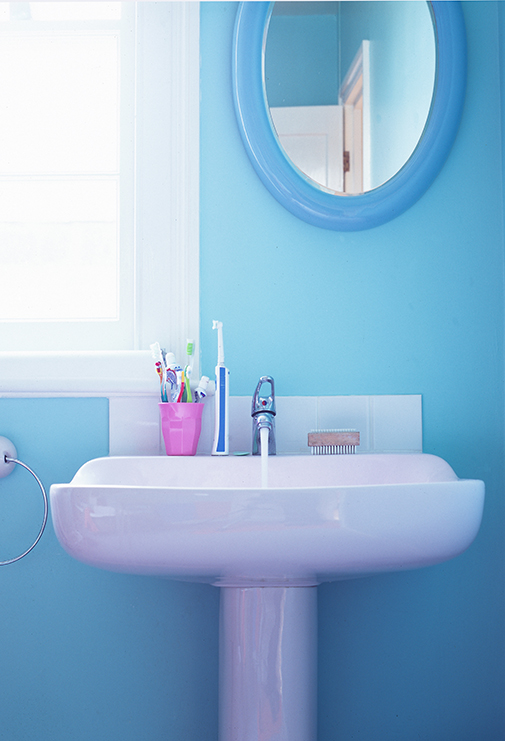- Vol. 01
- Chapter 10

Image by Katherine Fawssett
Now that they’re gone
The late summer sun beats against the window in luminescent waves. She has left the water running to fill the silence. Behind her the door to the bathroom is open, and for once she doesn’t care; closing a door presupposes that there’s someone to keep out. But there’s no one left.The routines that shape her days have assumed the mechanics of a rite: rise, stretch, wash face, brush teeth, scrub nails, massage sleep from eyes, breathe deep. This repetition is an incantation, an attempt to summon back at least one of the disappeared. Somewhere in the interstices of these motions she hopes to hear the laughter of children downstairs, the ring of the telephone, feet clomping up the stairs to the porch, the creak and slam of the screen door. But it’s been dead quiet for a week.
The first morning she thought it was a practical joke, or that her husband had taken the kids to get donuts and would be right back. But the car was in the driveway, and there was no way they had walked. She stood on the porch, waiting in the sticky heat of the early morning, drinking her coffee. The neighbor’s cars did not leave their driveways. No lawnmowers, no children on bikes, no delivery trucks. She only heard the songs of birds, the chirring of insects, the rustle of leaves, the sonorous notes of a wind chime.
Two hours passed and she began to worry. She could not get reception on her cell, and the landline emitted a fast busy as soon as it came off the cradle. She busied herself with household chores, taking advantage of the rare opportunity of an empty house. She kept turning off the vacuum cleaner to listen, thinking she had heard a voice somewhere under the machine’s roar, and as the motor wound down, she stood there taut, listening.
Now that they’re gone
When there was nothing left to clean, she checked the phones again – nothing – and then went for a walk through the neighborhood. She knocked on doors, peeked in windows, raised up garage doors, climbed fences. On a picnic bench in one backyard she finds a pitcher of tea covered in condensation. In one kitchen the oven is still on, just hot enough to desiccate a tray of french fries. She opens a washing machine in yet another home to find wet clothes. In another house she hears a buzz of sound, and rushes upstairs to discover a windowless home theater, the flat screen casting static on the walls, the speakers standing like sentinels on either side of it, registering absence in a wall of noise.This morning though she admits the obvious: she is utterly alone. She sits in the bathroom and listens to the water. The children’s toothbrushes are dry. She shuts the door, thinking maybe they will come when she isn’t here. Hoping that no one will witness what she is about to do, the brightest shame.
